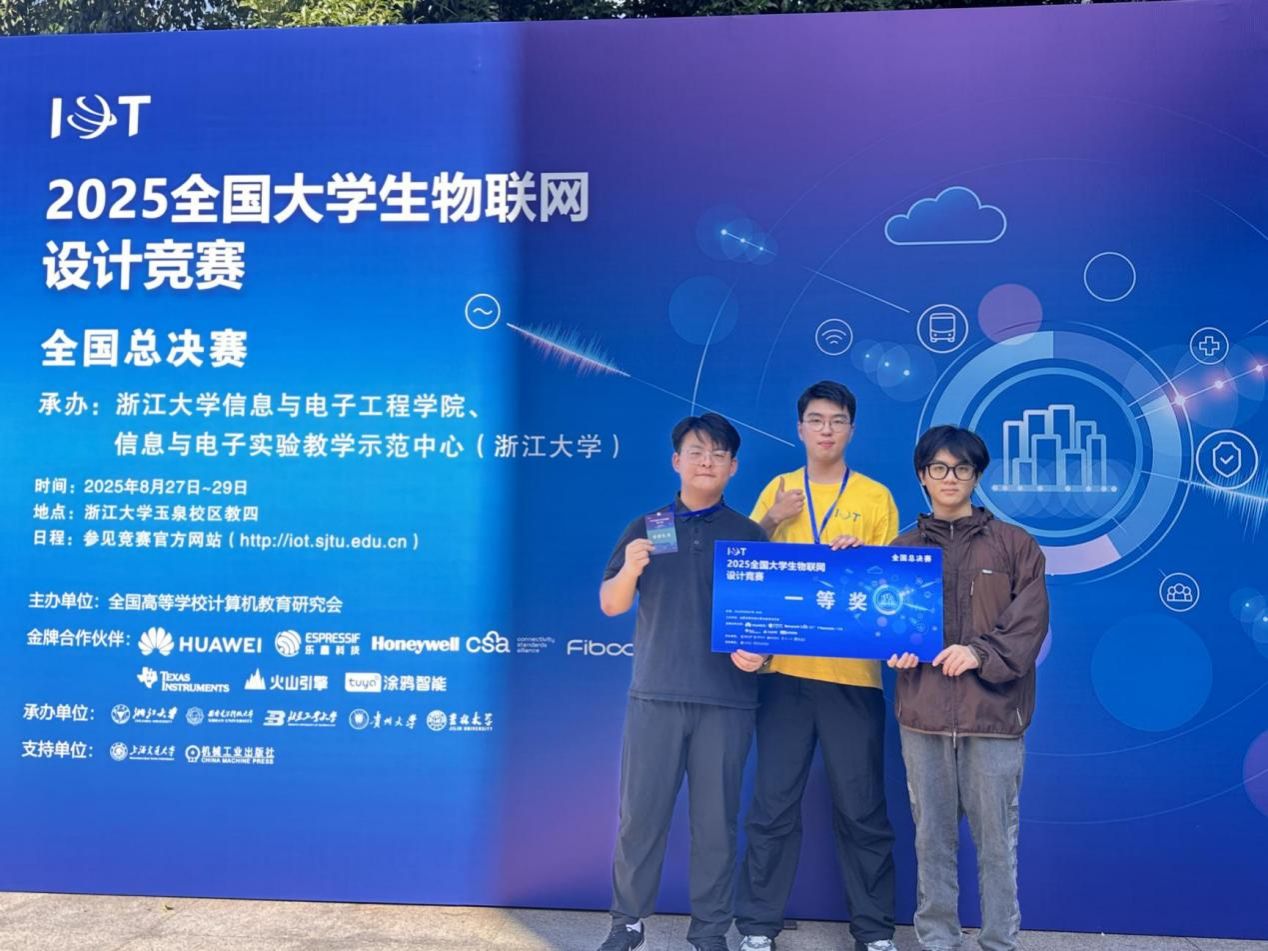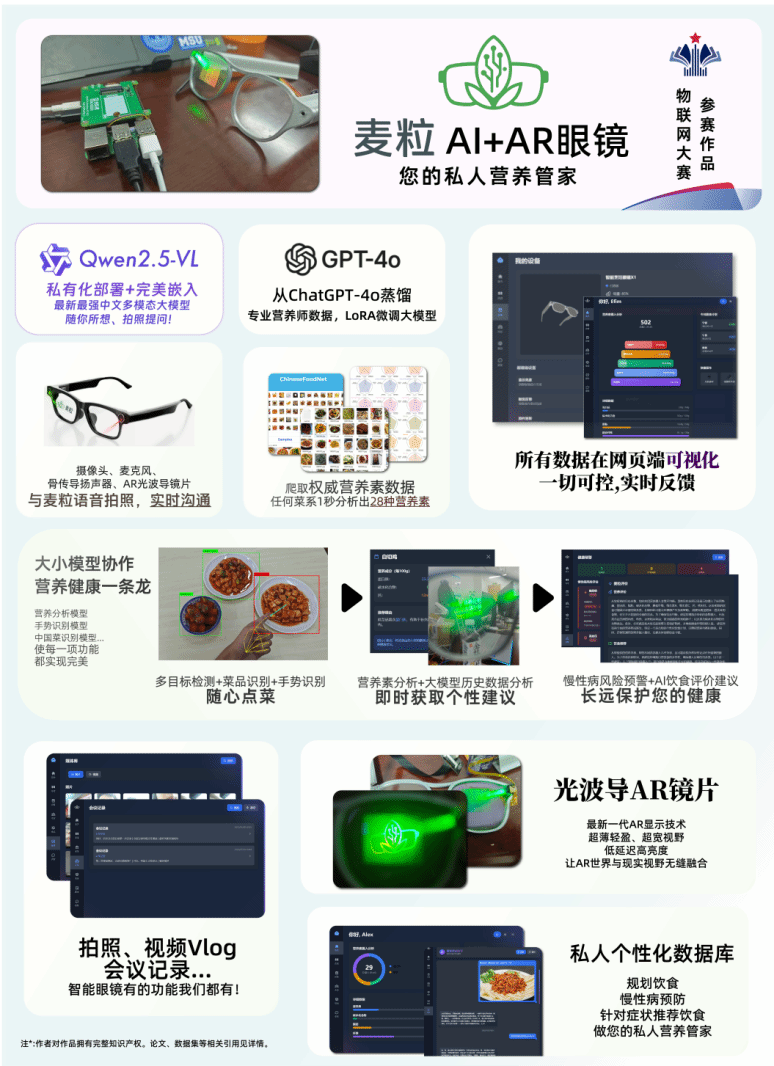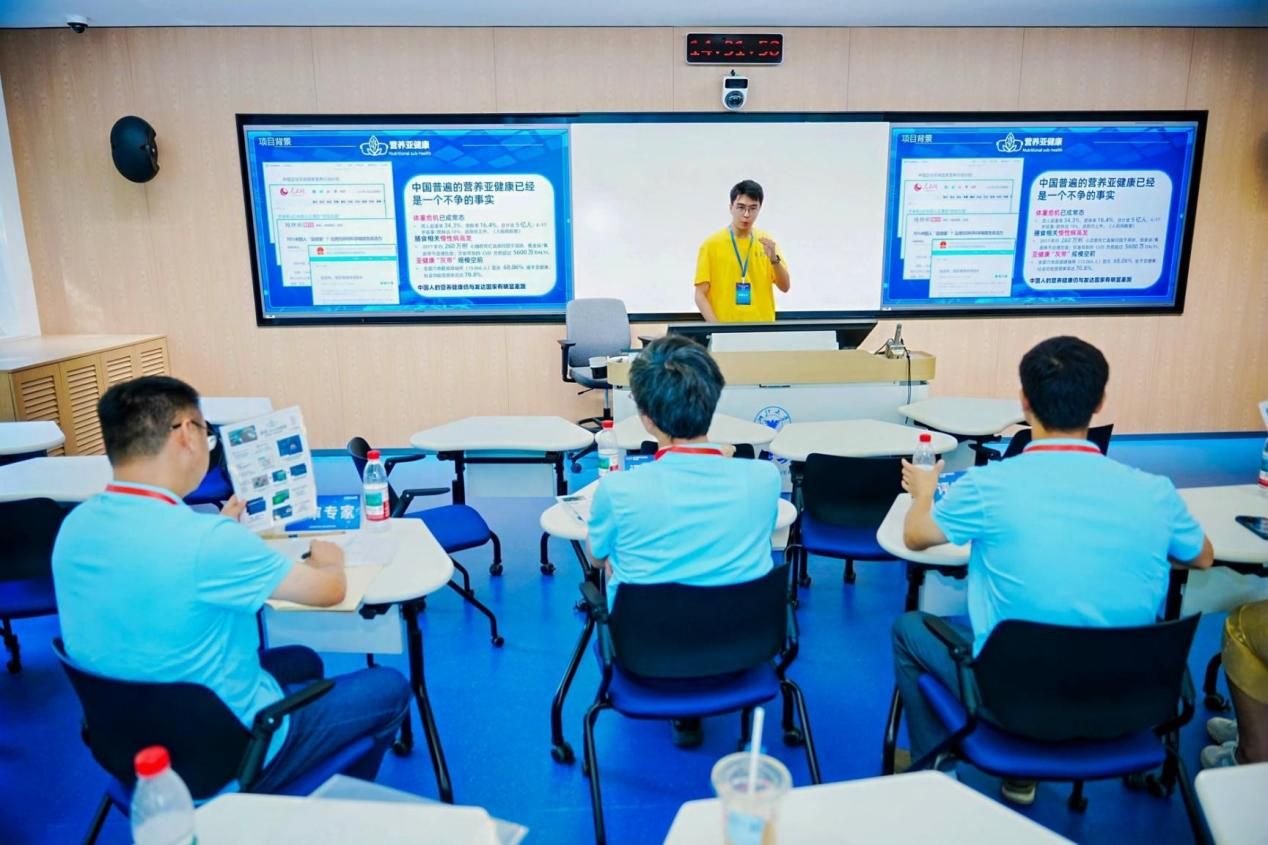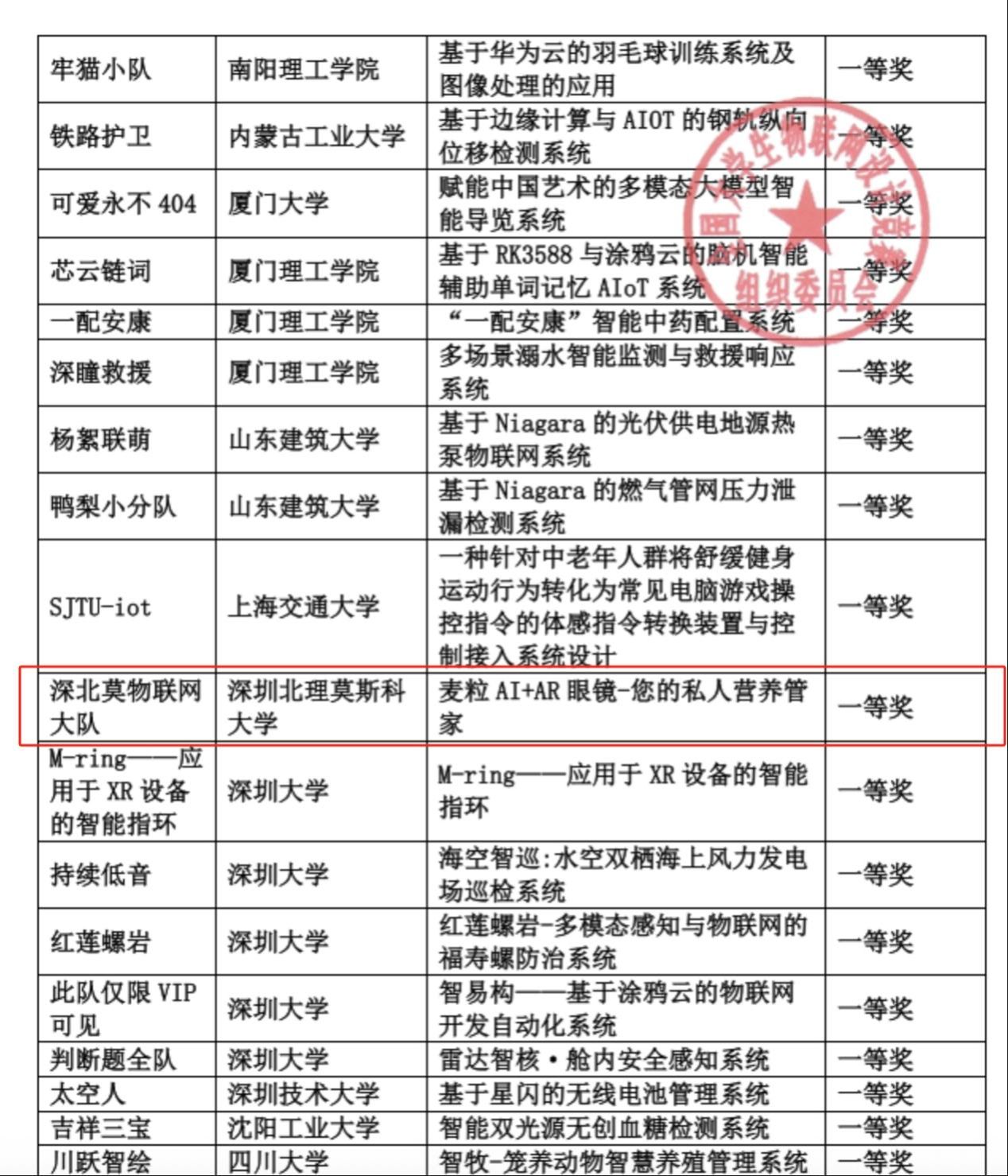From August 27 to 29, the 12th National College Student IoT Design Competition (2025) concluded successfully in Hangzhou. The event was organized by the China Computer Education Research Association and hosted by Zhejiang University. A team of four undergraduates from Shenzhen MSU-BIT University—Ruidai Liu (team leader), Junyu Zuo, Yuyang Cheng from the Faculty of Computational Mathematics and Cybernetics, and Mingze Zhao from the Faculty of Biology—earned both the First Prize in the East China Regional Final and the First Prize in the National Final. The team was jointly supervised by Associate Professor Runhao Zeng and Researcher Jianbo Zheng of the Artificial Intelligence Research Institute. Their success reflected strong technical expertise and a highly innovative design approach.

The National College Student IoT Design Competition is a premier contest in the Internet of Things field. With a mission to empower the development of IoT and next-generation information technology disciplines, the competition provides students with a practical platform to enhance innovation and entrepreneurship. This year’s event attracted 3,920 teams from 270 universities nationwide, with about 50 teams ultimately awarded first prizes.

SMBU’s winning project, the “MaiLiang AI+AR Smart Glasses,” demonstrated exceptional creativity and practical value. On the hardware side, the design integrates AR waveguide lenses, bone-conduction speakers, a high-definition camera, and 3D-printed frames, balancing comprehensive data collection with user-friendly interaction. On the software side, the system deployed powerful algorithms in the cloud, including the Qwen multimodal AI large model, YOLO-based image segmentation, and a Chinese cuisine recognition model. It also incorporated nutrient analysis and chronic disease early warning functions. Together, these features created a seamless workflow—gesture-based meal selection, AI interaction, nutritional advice, and health monitoring—realizing a true “personal nutrition assistant” solution.

Reflecting on the competition journey, team leader Ruidai Liu shared: “At three o’clock in the morning on the day of the national final, we suddenly discovered that our SD card was corrupted and all files were lost. At the same time, the AR optical module had already malfunctioned several times, and only a few hours remained before the demonstration.” Faced with this crisis, the team refused to give up. They immediately purchased a new SD card, reflashed the system, reconfigured the environment, and rewrote the code line by line. Just two hours before the presentation, they successfully restored the device’s functions, ultimately delivering a flawless demonstration that won the judges’ approval.
Behind this resilience was nearly three months of determination and perseverance. Although not IoT majors, the students worked under the guidance of Associate Professor Runhao Zeng to learn IoT fundamentals, refine hardware choices and software algorithms, and repeatedly adjust their design. Their ability to integrate interdisciplinary strengths ultimately gave their project a competitive edge.

In recent years, Shenzhen MSU-BIT University has actively promoted cross-disciplinary integration, encouraging students to participate in high-level competitions. These contests serve as platforms to strengthen practical skills, foster innovation, and connect theory with real-world applications. Moving forward, the university will continue to advance practice-oriented teaching reforms, enhance interdisciplinary talent training, and support more students in showcasing their abilities at national and international competitions—contributing to the cultivation of high-quality innovative talent for China’s technological development.